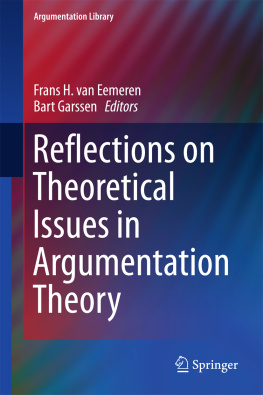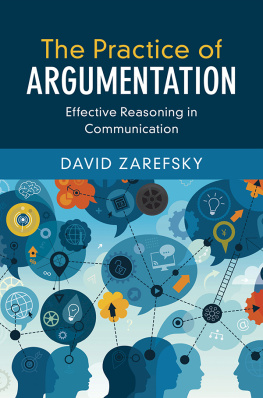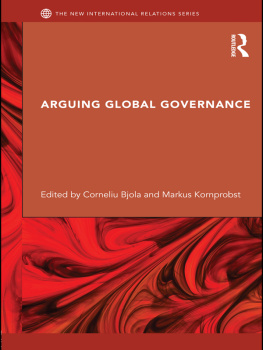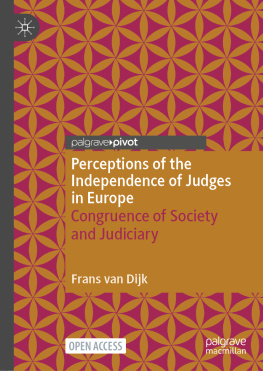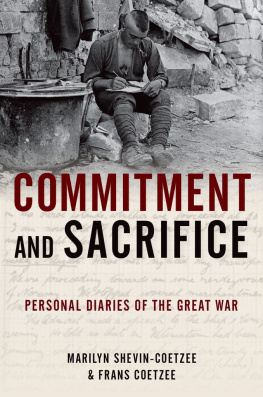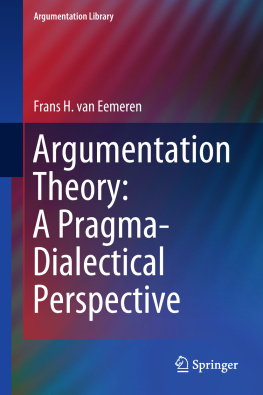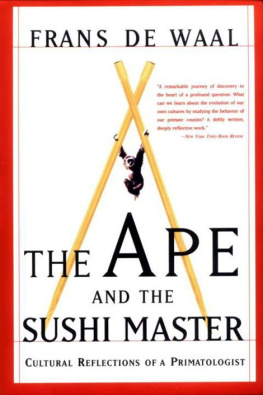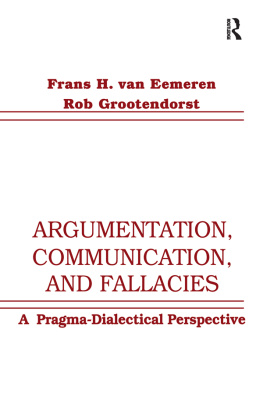Changes in the State of the Art of Argumentation Theory
Since the conference of the International Society for the Study of Argumentation held in Amsterdam in July 2014 was the eighth ISSA conference, argumentation theorists from various kinds of backgrounds have been exchanging views about argumentation for almost 30 years. My keynote speech at the start of this conference seemed to me the right occasion for making some general comments on the way in which the field is progressing.
I considered myself in a good position to strike a balance because during the past five years I have been preparing an overview of the state of the art in a new Handbook of Argumentation Theory . I have done so together with my co-authors, Bart Garssen, Erik C. W. Krabbe, A. Francisca Snoeck Henkemans, Bart Verheij, and Jean H. M. Wagemans. In this complicated endeavour we have been supported generously by a large group of knowledgeable reviewers and advisors from the field. On the 2 July reception of the ISSA conference the Handbook was presented to the community of argumentation scholars.
The Handbook of Argumentation Theory is the latest offshoot of a tradition of handbook writing that I started with Rob Grootendorst in the mid-1970s. We presented first several overviews of the state of the art in Dutch before publishing the handbook in English, the current lingua franca of scholarship (van Eemeren et al. ).
The overview offered by the newly-completed version of the handbook constitutes the basis for giving a judgment of recent developments in the discipline. It goes without saying that a short presentation does not allow me to pay attention to all developments that could be of interest; I limit myself to three major trends that I find promising. They involve innovations which are, in my view, vital for the future of the field.
Argumentation scholars are not in full harmony regarding the definition of the term argumentation .
The general theoretical perspectives that are dominant are the dialectical , which concentrates foremost on procedural reasonableness, and the rhetorical , focusing on aspired effectiveness. In modern argumentation theory both theoretical traditions are pervaded by insights from philosophy, logic, pragmatics, discourse analysis, communication, and other disciplines. Since the late 1990s, a tendency has developed to connect, or even integrate, the two traditions.
Compared to some 30 years ago, both the number of participants and the number of publications in argumentation theory have increased strikingly. Another remarkable difference is that nowadays not only North-American and European scholars are involved, but also Latin Americans, Asians and Arabs. In addition, an important impetus to the progress of argumentation theory is given by related disciplines such as critical discourse analysis and persuasion research .
Today I would like to concentrate on some recent changes in the way in which argumentation is examined. In my opinion, three major developments in the treatment of argumentation have begun to materialize that open up new avenues for research. Although they differ in shape, these developments can be observed across a broad spectrum of theoretical approaches. The three developments I have in mind can be designated as empiricalization , contextualization , and formalization of the treatment of argumentation.
Empiricalization of the Treatment of Argumentation
Modern argumentation theory manifested itself initially by the articulation of theoretical proposals for concepts and models of argumentation based on new philosophical views of reasonableness. In
In spite of their insistence on empiricalization of the treatment of argumentation, the empirical dimension of Perelman and Olbrechts-Tytecas own contributions to argumentation theory remains rather sketchy. In fact, all prominent protagonists of modern argumentation theory in the 1950s, 60s and 70s concentrated in the first place on presenting theoretical proposals for dealing with argumentation and philosophical views in their support. This even applies to the Norwegian philosopher Arne Nss, however practical and empirical his orientation was. In his own work however he refrained from giving substance to the empirical dimension of argumentation theory.
Despite the strongly expressed preferences of the founding fathers, I conclude that the development of the empirical component of argumentation theory did not really take off until much later. Making such a sweeping statement however, forces you often to acknowledge exceptions immediately. In this case, I must admit that there is an old and rich tradition of empirically-oriented rhetorical scholarship in American communication studies.) offers another example of such empirical research of historical political discourse in David President Johnsons War on Poverty . His more encompassing central question is how Johnsons social program, put in the strategic perspective of a war on poverty, and laid down in the Economic Opportunity Act, gained first such strong support and fell so far later on.
In my view, in argumentation theory argumentative reality is to be examined systematically, concentrating in particular on the influence of certain factors in argumentative reality on the production, interpretation, and assessment of argumentative discourse.
In France, Marianne Doury has recently carried out qualitative empirical research that is systematically connected with research questions of a more general kind (e.g., Doury ).
In contrast to theoretical research, in informal logic empirical research is rather thin on the ground. Nevertheless, Maurice Finocchiaro has carried out important qualitative research projects focusing on reasoning in scientific controversies (e.g., Finocchiaro Rather than judging arguments in historical controversies from an a priori perspective, as formal logicians do, Finocchiaro holds that the assessment criteria can and should be found empirically within the discourse.
The oldest and most well-known type of quantitative empirical research of argumentation takes place, mainly in the United States, in the related area of persuasion research . More often than not however persuasion research does not concentrate on argumentation. When it does, it deals with the persuasive effects of the way in which argumentation is presented ( message structure ) and the persuasive effects of the content of argumentation ( message content ). In the past years, both types of persuasion research have cumulated in large-scale meta-analyses, carried out most elaborately by Daniel OKeefe ().
Recently the connection between argumentation and persuasion has been examined more frequently, also outside the United States, in particular by communication scholars from the University of Nijmegen. Their research concentrates for the most part on message content. Hans Hoeken ( Later research conducted in Nijmegen has focused on the relative persuasiveness of different types of arguments.
Since the 1980s, quantitative empirical research has also been carried out in argumentation theory, albeit not by a great many scholars. In order to establish to what extent in argumentative reality the recognition of argumentative moves is facilitated or hampered by factors in their presentation I conducted experimental research together with Grootendorst and Bert Meuffels (van Eemeren et al.

